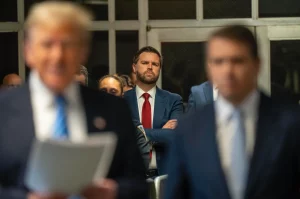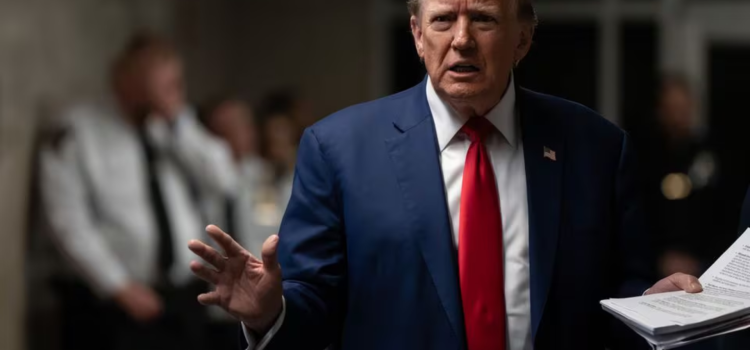
Introduction
The Trump hush money trial has gripped the nation, as jurors hear claims that former President Donald Trump orchestrated payments to silence damaging stories during his 2016 campaign. At the heart of the prosecution’s case is Michael Cohen testimony, which directly ties Trump to each step of the alleged hush money scheme. Cohen, once Trump’s trusted lawyer, has turned star witness, describing secret repayment plans, false invoices, and Oval Office conversations. His account offers a rare insider’s view of how the scheme unfolded—and why it matters for the future of presidential accountability in the Trump trial.
Trial Background and Charges
In April 2024, Trump became the first former president charged with criminal offenses. The indictment alleges 34 felony counts, including falsifying business records to cover up payments made to porn actor Stormy Daniels and model Karen McDougal. Prosecutors say these payments amounted to illegal campaign contributions meant to influence the 2016 election. The trial—held in Manhattan—has unfolded over weeks, with each side presenting evidence and witnesses. Central to the prosecution’s narrative is Cohen, who admits arranging the payments and expects reimbursement directly from Trump.
Cohen’s Role and Early Admissions
Michael Cohen began his testimony by admitting he paid Daniels $130,000 from his own pocket in October 2016 and later submitted invoices to Trump’s company for “legal services.” Under oath, Cohen explained that the invoices were deliberately false. He testified: “I created invoices knowing they did not reflect real services, so I could be repaid without raising questions.” This admission laid the foundation for the prosecution’s claim that Cohen acted at Trump’s direction to hide the true nature of the payments.
Oval Office Conversations
One of the trial’s most dramatic moments came when Cohen described a private Oval Office meeting. He recalled Trump saying, “Michael, you’ll be reimbursed for everything. We need to handle this quietly.” Cohen testified this direct promise convinced him to front the money, even though it risked his personal finances and reputation. Jurors heard audio excerpts and text messages that corroborated parts of Cohen’s account, strengthening the prosecution’s case that Trump was intimately involved in orchestration.
The trial of former President Donald Trump has captured the nation’s attention as it delves into allegations of a hush money scheme aimed at silencing stories potentially damaging to his 2016 campaign. As the proceedings unfold, Michael Cohen, Trump’s former lawyer turned star witness for the prosecution, has taken center stage, linking Trump directly to the alleged illegal activities. Here’s a comprehensive overview of the trial’s key events and testimonies. Michael Cohen’s testimony has been pivotal in linking Trump to all aspects of the hush money scheme.
Key Testimonies:
- Cohen’s assertion that Trump promised to reimburse him for payments made to silence stories detrimental to his campaign.
- Details of behind-the-scenes efforts to conceal the alleged misconduct.
- Introduction of evidence including text messages, audio recordings, and notes to support the prosecution’s claims.
Significance:
Cohen’s testimony provides a firsthand account of Trump’s involvement in the scheme, painting a compelling narrative for the prosecution.
Trial Highlights and Witness Testimonies

Stormy Daniels and David Pecker:
Dramatic testimonies from witnesses such as Stormy Daniels and former National Enquirer publisher David Pecker add intrigue to the trial.
Length of Trial:
The trial has entered its 17th day, with extensive examination of evidence and witness testimonies.
Trump’s Plea:
Despite facing 34 felony counts, Trump maintains his plea of not guilty, setting the stage for a contentious legal battle.
Cohen’s Testimony Unveiled
Minimal Work in 2017:
Cohen revealed that his work for Trump in 2017 was minimal, attributing the surge in activity to developments surrounding Stormy Daniels’ public claims.
Oval Office Discussion:
Cohen recounted a conversation with Trump in the Oval Office regarding the repayment plan for hush money, implicating Trump directly in the scheme.
False Invoices:
Cohen admitted to fabricating invoices for services rendered, shedding light on the deceptive nature of the financial transactions.
Cross-Examination Dynamics:
Prosecutors seek to mitigate potential damage from Cohen’s past lies while portraying him as a loyalist acting on Trump’s behalf.
Political Intrigue Surrounding the Trial
Republican Support:
House Speaker Mike Johnson and other GOP allies publicly denounce the trial as a sham, aligning themselves with Trump’s defense.
Gag Order Challenges:
Trump’s restricted ability to comment on the trial prompts strategic maneuvers, including bringing Republican supporters to speak on his behalf.
Legal and Political Ramifications:
The trial marks the first-ever criminal prosecution of a former U.S. president, raising broader questions about accountability and the rule of law.
Conclusion:
As the trial of Donald Trump unfolds, the testimony of key witnesses. Like Michael Cohen sheds light on the intricacies of the alleged hush money scheme. Against a backdrop of political polarization and legal scrutiny, the proceedings carry significant. And implications for the future of presidential accountability and the integrity of the U.S. judicial system.
Michael Cohen’s testimony has brought the Trump hush money trial into sharp relief, revealing how a promise to reimburse hush payments, false invoices, and Oval Office discussions fueled the prosecution’s case. Supplemented by testimonies from Stormy Daniels and David Pecker, Cohen’s account offers a detailed look at the alleged hush money scheme. As the first criminal trial of a former U.S. president, this case carries profound legal and political implications. The jury’s decision will test campaign finance laws and the principle that no one is above the law—setting a precedent for presidential accountability for generations to come.










